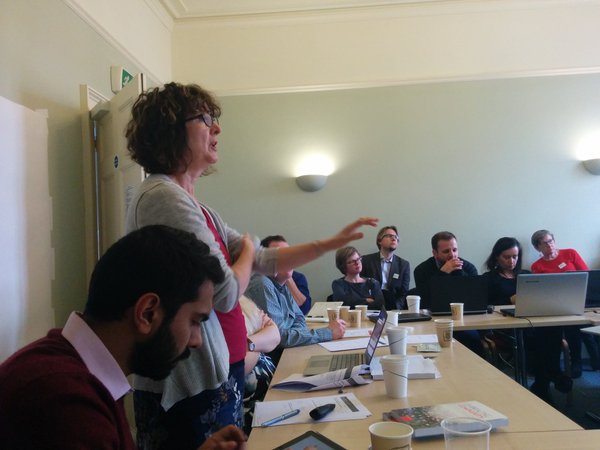I was privileged to be invited to a round table discussion in Oxford earlier this week on systemic change, hosted by Academics Stand Against Poverty (ASAP). Contributors included Tom Crompton from ‘The Common Cause Foundation’, Jen Morgan, co-founder of ‘The Finance Lab’, Alex Jones of ‘The New Economics Foundation’ and Iason Gabriel, a politics fellow at St John’s in Oxford.

The thing that was so great about this round table was that it aspired to the principles of systemic change – i.e. it brought together a range of people from difference disciplines and life experiences, gave space for presenting ideas and space for connecting and seeing what emerged. And, for me, what emerged was this sense that certain themes that have been part of my thinking and practice edge seemed to have much in common with the themes of others, coming from very different starting points.
For me, these themes included:
- What does governance mean in a global (systemic) world?
- The importance of values and worldviews – and what do you do to surface/influence values and worldviews/unifying narratives?
- How do you – or indeed do you – engage with the question of evidence and attribution in a systemic world. Does our obsession with attribution take over from our focus on learning and sharing how to engender change in the first place – and indeed on how we use evidence of attribution and measures of success if and when we achieve it?
- Principles and intentions rather than methods and theories of change?
- Change – when do you do what – intervention, regulation, building coalitions and communities, challenge/activism, bottom-up/top down, nudging/directing – how do we give some guidance as to how you judge what to do – or do you just try things and see what happens?
I was particularly fascinated by the work Tom Crompton shared, some research on values. He was telling us that if we engage people with, say, economic reasons for reducing carbon, this tends to diminish how we value and pay attention to environmental values. We diminish the strength of ‘self-transcendence’ values if we focus on/reward ‘self-enhancement’ values.
This fits, interestingly, with our increasing understanding of the plasticity of the brain (read or watch on BBC catch up The Brain by David Eagleman). And how the brain works fits with our understanding of the dynamics of complex systems – where the future in shaped, at least in part, by the ingredients you put into it. In other words, if you feel that the end justifies the means, you may allow yourself to sidestep your own moral code, in which case you are adding ‘less than ideal’ ingredients into the mix.
Complexity thinking suggests that in general the ‘end’ does not follow smoothly from the present and in general we cannot be certain what will emerge. So how we act and what values and behaviours (ingredients) we put into the system – what we do ‘now’- is not something we can sidestep. Eagleman, similarly, is saying that the brain will reshape itself given what influences it, what we think about and how we feel rewarded by others with whom we are in relationship. The emerging patterns of connection are shaped by the past and changed by what we do/think/feel/pay attention to.
So, I hope you can feel how energised I felt by the roundtable, how nice it was to meet with others and engage in a way that was both ‘of the mind’ and also ‘of the heart’. You could feel the commitment and passion in the room about playing a part in making the world a better, more equal, more sustainable place.